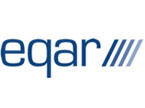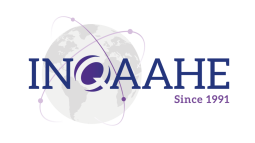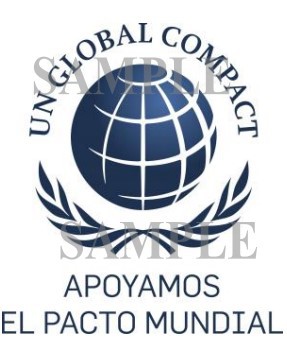Launched in: 2018
Staff responsible for programme: Management, technician for QA.
Bodies supervising: Committee of Experts and Commission of Evaluation, Certification and Accreditation (CECA)
2019-2022 Strategic Lines: L6 and L5
The goal is to strengthen:
- Integration of external stakeholders (professional practitioners, industry, society) in the ACPUA’s structure.
- Participation of external stakeholders (professional practitioners, industry, society) in the ACPUA’s quality assurance activities.
- Joint commitment to social dimension of quality and sustainability (achieving the SDGs).
- Cooperation and stable relations with business associations, academic staff unions, professional colleges, social associations, chambers of commerce and cluster-based economic sectors in Aragon.
- Awareness of ACPUA’s mission and actions among Aragon society.
- A common understanding of innovation in higher education, technological changes and labour market needs.
Dialogue with stakeholders
The ACPUA currently involves stakeholders in most of its bodies and committees.
Since its creation, the ACPUA has strengthened and intensified relations with all stakeholders and devised working together formulas to organize events or undertake projects with important institutions and social agents such as:
- the Academia General Militar (the most important military training centre in Spain, located in Zaragoza): ACPUA/CUD seminar, in collaboration with the General Military Academy Quality in the Defence University Centres. The ACPUA actively promotes dialogue and the exchange of experiences on issues related to university quality through the organisation of different activities and events of its own, such as workshops or conferences in which professionals with national and international academic and management experience attend and participate.
- the Aragon Institute of Statistics. Among others, the ACPUA actively collaborates in studies such as the Labour Market Insertion Survey.
- the Confederation of Employers of Aragon (CREA). Collaboration in the elaboration of the Report on young people in Aragón 2014. The conclusions on the collective in the Autonomous Community, based on data collected through surveys, discussion groups and personal interviews, were complemented with the compilation and analysis of existing reports and studies on training and employment, especially those that have an impact on the situation of children under 25 years of age.
- the Aragon Employment Institute.
- the National Statistics Institute (INE). The ACPUA has collaborated in the elaboration of the Survey of labour insertion of the graduates in Aragon.
- the Economic and Social Council of Aragon.
- professional associations
- teachers' unions
- associations and foundations: Collaboration with Cruz Roja, research with Unizar and ADAFA (the impact on foster care in Aragon).
- Defense Delegation in Aragon
Quality Culture
One of the main objectives of the ACPUA is to promote the improvement of the quality of the Aragon University System and the dissemination of a quality culture. We consider that the periodic holding of seminars for reflection and debate on university quality is a useful, new and timely way of achieving this objective. Therefore, since 2012, our monthly seminars offer a space for dialogue, an interdisciplinary meeting place for the exchange of knowledge, methods and experiences between teachers, students, quality technicians, professionals, researchers, etc.
As quality is currently a global concept, in 2015 the cycle of ACPUA Seminars aimed to bring to Aragon novelties, perspectives and proposals for collaboration that come from three continents.
Access the history of events and activities to disseminate the Culture of Quality in Higher Education.
But in addition to the organisation of seminars, ACPUA has carried out other activities to further promote the culture of quality.
- Erasmus+ PackAlliance project.
- Visit to the institution of Justice of Aragon.
- International meeting: The 2030 Agenda: Embarking QA Agencies and stakeholders in this collective journey.
Corporate Social Responsibility
The ACPUA requires all its members and collaborators to perform their duties in accordance with the highest ethical standards, as well as the highest levels of professionalism and integrity.
Likewise, the maintenance of an adequate working environment and mutual cooperation in the exercise of its activities, as well as the guarantee of attitudes of tolerance and non-discrimination in all circumstances, is an absolute priority for the ACPUA. ACPUA's commitment to these principles is embodied in the Agency's adherence to the Luxembourg Declaration and the Global Compact on Business Sustainability.
UNITED NATIONS GLOBAL COMPACT
The ACPUA is adhered to the United Nations Global Compact (GCI), supporting, defending and enforcing to all its workers and collaborators the 10 Principles of the same in human rights, labour standards, environment and anti-corruption. With more than 12,000 signatory entities in more than 145 countries, this is the largest voluntary corporate social responsibility initiative in the world.
- Principle 1: To support and respect the protection of human rights.
- Principle 2: Not to be complicit in the abuse of human rights.
- Principle 3: To support the principles of freedom of association and the right to collective bargaining.
- Principle 4: To eliminate forced and compulsory labour.
- Principle 5: To abolish any form of child labour.
- Principle 6: To eliminate discrimination in respect of employment and occupation.
- Principle 7: To support the preventive approach to environmental challenges.
- Principle 8: To promote greater environmental responsibility.
- Principle 9: To encourage the development and dissemination of environmentally friendly technologies.
- Principle 10: To take action against all forms of corruption, including extortion and bribery.
Through this adhesion, the ACPUA becomes part of a network of organisations that share the conviction and commitment that their corporate practices contribute to the construction of a more stable, equitable and inclusive world that fosters more prosperous societies.
These 10 Principles are based on:
- The Universal Declaration of Human Rights.
- The Rio Declaration on Environment and Development.
- The UN Convention Against Corruption.
- The Declaration of the International Labour Organisation.
DECLARATION OF LUXEMBOURG
The ACPUA, in line with its objectives and values, has signed the Luxembourg Declaration on Promoting Health in the Workplace (PST), which consists of uniting the efforts of employers, workers and the society to improve the health and well-being of people in the workplace.
This commitment means moving from a simple prevention of occupational risks to a broader vision of true health promotion in the workplace, combining activities aimed at improving organisation and working conditions, promoting active participation and encouraging individual development.
SUSTAINABILITY REPORT
Through this document, the ACPUA wishes to systematise, in a public document, its commitments and activities in the area of corporate social responsibility.
The sustainability report has been prepared following the Framework offered by the Global Reporting Initiative (GRI), a non-profit organisation founded by CERES (Coalition for Environmentally Responsible Economies) and the United Nations Environment Programme (UNEP). Specifically, the G4 Guidelines for the preparation of Reports have been followed, which establish the principles and indicators that organisations can use to measure and publicise their economic, environmental and social performance.











